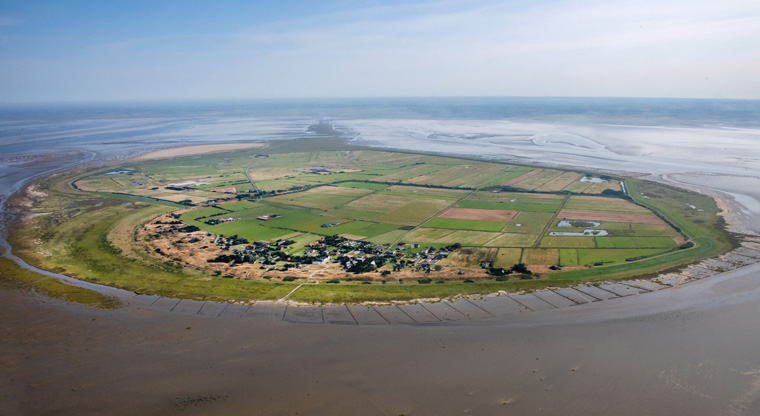
By Drew Reagan, DarkSky author
MANDØ, Denmark — When night falls on Mandø, it becomes truly special. The darkness is overwhelming on the island between Fanø and Rømø in the Danish part of the Wadden Sea. Today, it is rare to admire a starry sky unaffected by light pollution. But on Mandø, it is possible, resulting in the island now being certified as an International Dark Sky Park by DarkSky International.
On Mandø, the chairman of the Mandø Community Council, Claus Christensen, has just received the news that the island is moving up to a whole new league.
“The certification process has taken longer than we initially expected. It has been a comprehensive process to measure and document the darkness and reduce the amount of light. Now, it will be exciting to see what the Dark Sky Park designation will mean for Mandø. Naturally, attracting tourists during the autumn and winter months, when stargazing conditions are optimal, plays a role. Still, our starting point has always been that darkness should have better conditions on the island and in the Wadden Sea region. That is what we will stick to,” says Claus Christensen.
Darkness does not come on its own. It requires effort. The 25 streetlights on Mandø have been replaced and are turned off entirely between 11:00 PM and 5:00 AM. All other exterior lighting must also comply with Mandø’s light action plan or be replaced by 2033. Efforts have also been made to reduce light pollution from the Port of Esbjerg, which can be seen when looking to the north from Mandø.
“Mandø is exceptional, and the designation as an International Dark Sky Park underscores that with the convergence of diverse interests such as nature conservation and tourism. There is potential to create experiences based on the darkness, which is not just about seeing the Milky Way and beautiful constellations. It is just as much an experience to be enveloped by the darkness and tranquility,” says Mayor Jesper Frost Rasmussen of Esbjerg Municipality.
The numerous initiatives to protect the darkness stem from the application process to achieve the International Dark Sky Park status. The DarkSky International, a worldwide organization, has established criteria for an area to be certified as an International Dark Sky Park. The certification application must demonstrate that it gets dark enough to meet the night sky quality requirements. There must also be an active program to protect and promote the night sky, and dark sky preservation must be widely supported by local stakeholders.
Lack of natural darkness affects humans and wildlife, and artificial light at night can confuse animals and deprive them of the safety and protection darkness provides. What Mandø residents call ‘buldermørke’ has become increasingly difficult to find as urban lights prevent nightfall.
“The nature on Mandø is something special, and for wildlife, darkness is significant. It is scientifically proven that darkness is important for birds, bats, and insects, or rather, that light pollution harms them,” says John Frikke, nature project manager from the Wadden Sea National Park.
With Mandø’s certification, the Wadden Sea National Park gets its first International Dark Sky Park. To the south, darkness in the Wadden Sea areas of both Germany and the Netherlands has already become a tourist magnet, and in the Wadden Sea area, there are now three International Dark Sky Parks. In total, there are 23 International Dark Sky Parks in Europe.
“The Dark Sky Park status can support sustainable tourism, where it becomes attractive to visit Mandø, not only in the summer months. There is no doubt that the certification will benefit Mandø but will also positively impact the entire Wadden Sea tourism industry like ripples in water. It is an endorsement of the quality of tourist experiences,” says Hans Peter Folmann, destination manager for the Wadden Sea Coast.
During the fall, the certification on Mandø will be officially celebrated, while efforts are also underway to complete a new Welcome Center on the island. This center will include an area dedicated to stargazing with telescopes.
“This certification and associated efforts highlight Mandø’s commitment to preserving their natural darkness. Together with the UNESCO World Heritage and National Park status, this accomplishment underscores the significance of the site’s region’s natural resources. The collaborative efforts undertaken for the certification, including reductions in local light pollution and innovative outreach projects, exemplify Mandø’s dedication to protecting its dark skies. With strong local support and ongoing initiatives, Mandø’s certification is an inspiration for sites worldwide striving to safeguard their nocturnal environments. It is exciting to see this initiative featured at the new Welcome Center,” stated Amber Harrison, the Dark Sky Places Program Manager.
Tagged with DarkSky, lightED